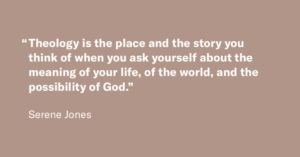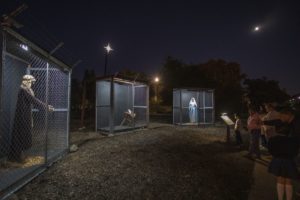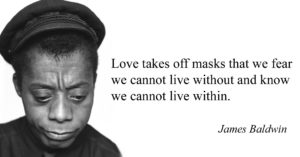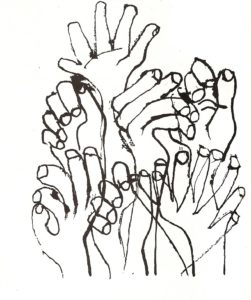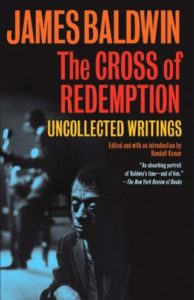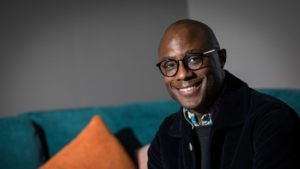James Baldwin
Baldwin & Bloomberg
February 12, 2020“This Baldwin clip in light of the Bloomberg audio released yesterday means so much. Spend 2 minutes of your day and watch this.” –Former SC House of Rep ’06 – ’14. Democratic nominee for Lt. Gov. ’14. Author of “My Vanishing Country” on sale 5/19.
NPR:
Michael Bloomberg is distancing himself from a 2015 speech in which the former New York City mayor defended aggressive police tactics in minority neighborhoods.
“95% of your murders and murderers and murder victims fit one M.O. You can just take the description and Xerox it and pass it out to all the cops. They are male minorities 15 to 25.”
He continues: “That’s true in New York. That’s true in virtually every city in America. And that’s where the real crime is. You’ve got to get the guns out of the hands of the people that are getting killed.”
Bloomberg’s idea of a solution? Flooding minority neighborhoods with law enforcement.
“People say, ‘Oh my God, you are arresting kids for marijuana who are all minorities.’ Yes, that’s true. Why? Because we put all the cops in the minority neighborhoods. Yes, that’s true. Why’d we do it? Because that’s where all the crime is. And the way you should get the guns out of the kids’ hands is throw them against the wall and frisk them,” Bloomberg says.
Bloomberg, in a statement, noted how he had apologized for championing stop and frisk before kicking off his presidential bid.
“I should’ve done it faster and sooner. I regret that and I have apologized — and I have taken responsibility for taking too long to understand the impact it had on Black and Latino communities,” Bloomberg said in the statement. “This issue and my comments about it do not reflect my commitment to criminal justice reform and racial equity.”
CBS:
“A subtle look. The bus driver not letting you on the bus. A salesperson following you in a store while you’re shopping.
A Columbia University professor created a virtual reality program that allows people to see what African-Americans experience on a day-to-day basis.” pic.twitter.com/M1xtgXkYoB
Public Theology
December 11, 2019[Serene Jones is the President and Johnston Family Professor for Religion and Democracy at Union Theological Seminary in the City of New York. She was formerly the Titus Street Professor of Theology at Yale Divinity School and chair of gender, woman, and sexuality studies at Yale University.]
“…good theology absolutely must be public theology. What is theology, if it’s not talking about our collective lives and the meaning and purpose of our lives and how we’re supposed to live together and who God is, in ways that are part of our conversation together?
[…]
God creates us to be glorious: gives us powers of intellect and love and connection and art, and we’re capable of amazing, extraordinary accomplishments. And yet, right next to this glorious side is this weird propensity that human beings have to choose what is not good for them, to choose evil, to sin, to close their eyes to the love of God and their own glory and to become harmful and self-destructive and destructive of others. And life is the struggle of those two realities within us. And they never go away. It’s not like you get over the sin part and become glorious; it’s not like you’re ever only sinful. That is the complex nature of who we are.”
[A Nativity scene at Claremont United Methodist Church in California depicts Jesus, Mary and Joseph separated and caged, as asylum seekers detained by ICE. Baby Jesus is wrapped in a foil blanket.]
“And the second thing I’d say about this political moment — and it’s a deeply theological claim — is, I honestly think, at the heart of our nation’s turmoil is the fact that people honestly do not believe that we are all equal and loved equally and equally valued. They just don’t believe that.”
‘You’re set free, actually, by the telling of the truth.’
“I realize that it’s my work to do, but I’m not going to be here to see what comes. And that’s OK. But we got a lot of work to do in these next years, all of us together, even if we don’t know where we’re going.”
And then James Baldwin says,
“I use the word ‘love’ here not merely in the personal sense, but as a state of being, or a state of grace, not in the infantile American sense of being made happy, but in the tough and universal sense of quest and daring and growth.”
❥
‘To do the right and love goodness.’
August 2, 2019You have been told . . . what is good
And what the Lord requires of you:
Only to do the right and to love goodness,
And to walk humbly with your God. (Micah 6:8)
╭ღ╯
“It has always been much easier (because it has always seemed much safer) to give a name to the evil without than to locate the terror within.”
“We ought to try, by the example of our own lives, to prove that life is love and wonder and that that nation is doomed which penalizes those of its citizens who recognize and rejoice in this fact.”
Timeliness from Baldwin, born on this day in 1924.
“I can conceive of no better service,” Walt Whitman wrote, “than boldly exposing the weakness, liabilities and infinite corruptions of democracy.” Nearly a century later, James Baldwin (August 2, 1924–December 1, 1987) — another poet laureate of the human spirit — embodied this ethos in one of his shortest, most searing, and timeliest essays.
“We are living through the most crucial moment of our history, the moment which will result in a new life for us, or a new death… a new vision of America, a vision which will allow us to face, and begin to change, the facts of American life… This seems a grim view to take of our situation, but it is scarcely grimmer than the facts. Our honesty and our courage in facing these facts is all that can save us from disaster. And one of these facts is that there has always been a segment of American life, and a powerful segment, too, which equated virtue with mindlessness… It always reminds me of a vast and totally untrustworthy bomb shelter in which groups of frightened people endlessly convince one another of its impregnability, while the real world outside — by which, again, I mean the facts of our private and public lives — calmly and inexorably prepares their destruction.”
“We must dare to take another view of majority rule… taking it upon ourselves to become the majority by changing the moral climate. For it is upon this majority that the life of any nation really depends.”
Divine Feminine
May 13, 2018The Divince creator carried in the essence of that created.
[Richard Rohr]
“Every artist is involved with one single effort, really, which is somehow to dig down to where reality is. . . . Artists are the only people in society who can tell that society the truth about itself.”
James Baldwin [1924-1987]
What do we see?
Happy Divine Feminine Day.
Dear White People:
May 11, 2017‘Moonlight’ Director Barry Jenkins on His Game-Changing ‘Dear White People’ Episode
Jenkins spoke to The Daily Beast about directing ‘Dear White People,’ his own streaming series ‘Underground Railroad,’ and how he’s feeling about the Oscars these days.
[Matt Wilson]
“Chapter V” of Dear White People opens with a quote from James Baldwin: “Not everything that is faced can be changed, but nothing can be changed until it is faced.”
Each episode of Simien’s series, based on his 2014 film of the same name, focuses its attention on a different student at the fictional Ivy League school. This one tells the story of Reggie Green, beautifully portrayed by Marque Richardson, who played the same role in the film.
We get a glimpse of the micro—and not so micro—aggressions Reggie has to endure on campus on a daily basis. The white woman running away from the ATM when she sees he’s next in line, the football coach mistaking him for a member of the team.
As a filmmaker, Jenkins realized it was his job to “solve problems,” which in this case meant finding the “transitions between comedy, romance, and ultimately this tense act of emotional violence that almost becomes actual violence.”
